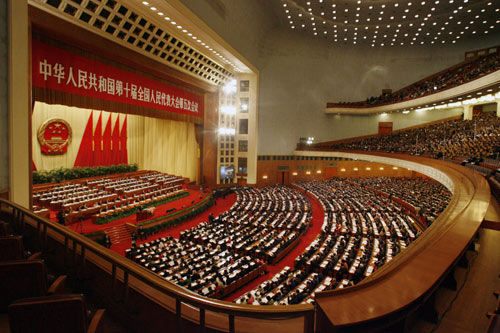Government to cut 2007 budget deficit
(Bloomberg)Updated: 2007-03-05 13:38
China's central government forecasts a budget deficit of 245 billion yuan ($31.6 billion) this year, 30 billion yuan less than in 2006, as economic growth boosts tax revenue, Finance Minister Jin Renqing said.
The government of the world's fourth-largest economy switched to a "prudent" fiscal policy in 2005, aiming to spend less instead of pouring money to fund growth. The 2006 deficit of 275 billion yuan was 20 billion yuan less than targeted and local governments had a combined surplus of 76.7 billion yuan, Jin said today at the annual meeting of the legislature in Beijing today.
|
|
China's record 2006 trade surplus of $177.5 billion gave the country more than $1 trillion in reserves, the world's largest holdings of foreign currency. Chinese Premier Wen Jiabao has pushed to raise interest rates, tighten lending and cut tax rebates to avoid inflation and production glut in factories.
The government cut its 2007 economic growth target to 8 percent, compared with an expansion of 10.7 percent last year.
Revenue, spending targets
China aims to collect 4.4 trillion yuan of revenue this year, 14 percent higher than in 2006, and spending may rise 16 percent to 4.65 trillion yuan, Jin said today.
The forecast 2007 fiscal deficit will be 11 percent narrower than last year's actual deficit. The target deficit for 2006 was 295 billion yuan. Actual revenue growth was 3.93 trillion yuan in 2006, while spending totaled 4.02 trillion yuan, 19 percent higher than in 2005, Jin said.
China is seeking to narrow the income gap between rural residents and city
dwellers, spurring domestic consumption to cut the country's reliance on
exports.
| 1 | 2 |  |
(For more biz stories, please visit Industry Updates)

